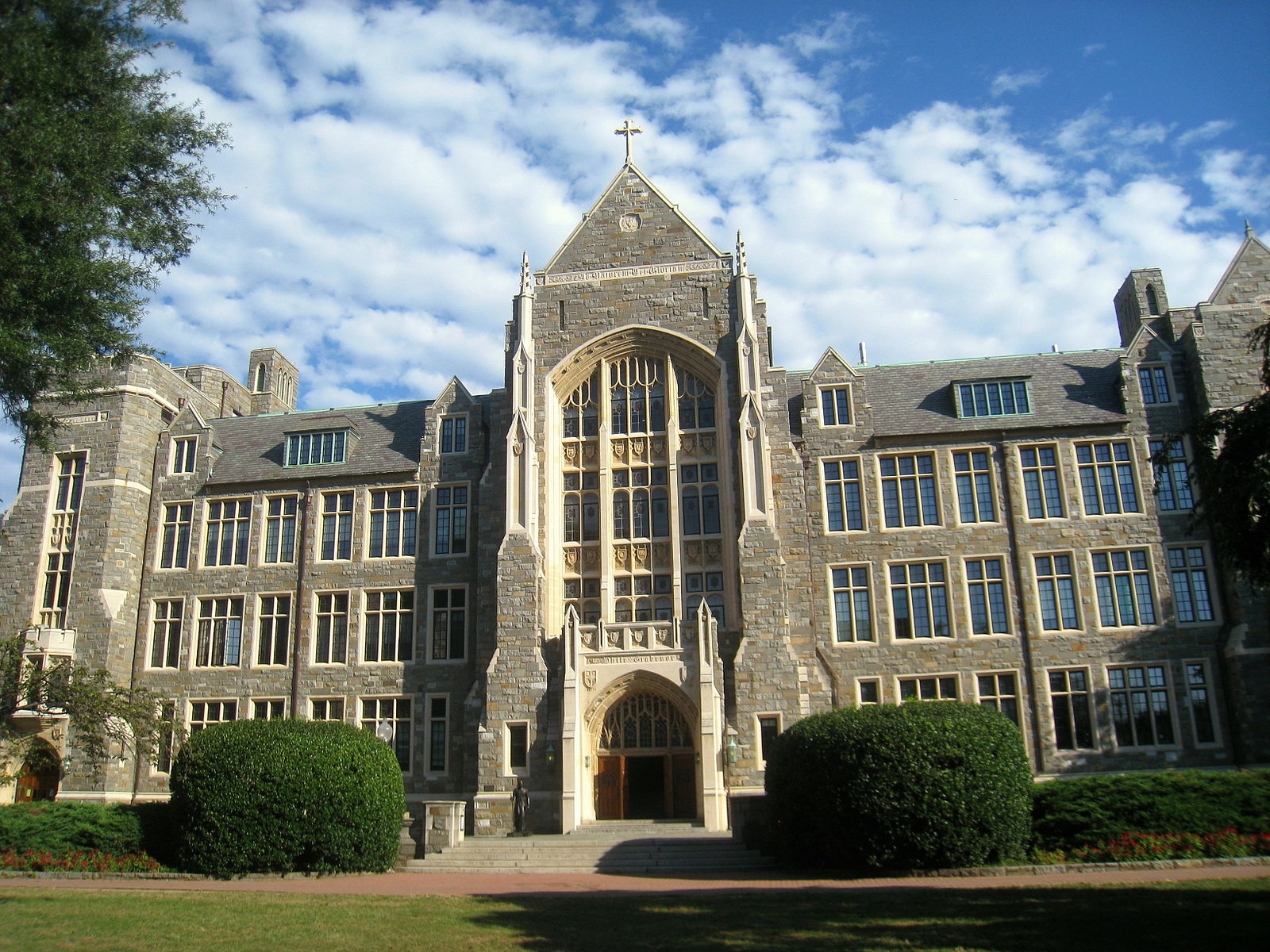In 2014, Johns Hopkins University quietly removed its admissions’ consideration of legacy status. This January, their university president went public with the change in The Atlantic, noting dramatic increases in diversity Hopkins saw as a result of the elimination.
At Georgetown, applicants with legacy status are twice as likely as non-legacy applicants to be accepted. In order to uphold its value of community in diversity, Georgetown must end its practice of legacy preferences during the currently in-progress Regular Decision admissions process. Ending the preferential treatment given to direct descendants of alumni is one of many much-needed steps to make Georgetown the more equitable institution it claims to want to be.
Nationally, legacy admissions preferences are practiced by roughly three-quarters of the top 100 American schools. A 2004 study found that legacy status, on average nationally, translates to a 160-point increase in SAT score on a 1600-point scale. It is incontrovertible that legacy status offers a massive advantage to applicants with alumni relationships.
The legacy admissions advantage is not enjoyed by a diverse pool of students. Legacy students are disproportionately white and wealthy. Few minority students have parents who attended elite universities, meaning few have legacy status. A 2019 study reviewing nearly 170,000 Harvard applicants between 2009 and 2014 found that roughly 70 percent of legacy applicants were white. The study also found that legacy applicants were much less likely to be flagged as socioeconomically disadvantaged than their non-legacy peers, pointing to a substantial wealth gap. There’s no radical difference from these norms at Georgetown: The Hoya reported in 2017 that legacy students tended to originate from the East Coast and were more likely to be white.
History shows these effects of legacy admissions were intentional. Legacy systems were originally devised in the 1920s to implicitly enforce racial and religious hierarchies in higher education, specifically to exclude Jewish and immigrant matriculants. What should be an outdated artifact has instead been preserved, perpetuating its original discriminatory purpose.
Legacy admissions preferences are not entirely monolithic across the country and certainly not around the world. According to an Inside Higher Ed survey of admissions counselors, while roughly 40 percent of private institutions across the country consider legacy status in their admissions processes, only about 6 percent of public state institutions do the same. Five of the top ten institutions globally, according to the Shanghai Ranking, eschew the use of legacy preferences entirely.
The argument for legacy admissions often pivots around a nebulous “fundraising incentive,” based on the idea that if the children of alumni are accepted, alumni will be more inclined to donate to the university. As Georgetown builds its own endowment, this may seem like a lucrative rationale for maintaining the legacy preference system. Yet, a study from Richard Kahlenberg’s Affirmative Action for the Rich pointed to “no statistically significant evidence of a causal relationship between legacy preference policies and total alumni giving” after reviewing the top 100 universities. Legacy preferences are at best dubitable as a tool for collecting donations. Moreover, prioritizing profits (no matter how nebulous) over equal opportunity in itself violates Georgetown’s values and diminishes its ability to admit a diverse class.
With their change, Hopkins saw remarkable increases in Pell Grant-eligible students among the new freshman class, along with first-generation and limited-income students. Fundraising contributions didn’t decrease dramatically, further proving that providing equal opportunity to all qualified students isn’t a financial liability. Georgetown must follow Hopkins and eliminate legacy preferences.
To be clear, this editorial board does not discredit the place of legacy students currently on campus or attempt to undervalue their accomplishments. Irrefutably, students who have enjoyed legacy advantage have also been remarkable contributors and members of the Georgetown community. This being said, legacy preferences give a disproportionate amount of weight to biological ties rather than individual merit. With holistic admissions being incredibly complex, alumni ties in the family should not be what tips the scale in favor of a student’s acceptance. Legacy students themselves deserve the certainty that they are on campus for reasons that eclipse their legacy status.
The immense benefits legacy students reap relative to non-legacy students extend beyond the superficial family tie. With the oft-accompanying wealth comes opportunity, connections, and resources. It is no secret that college-prep classes, private tutors, and opportunity for “standout” extracurriculars all increase in accessibility with deeper pockets. This further skews wealthy legacy applicants to seem more “qualified” on paper than some of their non-legacy peers; the presence of an explicit legacy preference only further perpetuates these imbalances.
Importantly, the increase in diversity in Hopkins’ freshman class didn’t occur strictly in a silo: other changes in school marketing and financial aid policies also augmented Hopkins’s diversification. If Georgetown truly seeks to diversify its student body, it will require systemic reform in its entire admissions process, from adopting a test-optional policy to diminishing financial barriers. The removal of legacy admissions is only a necessary first step.






Please look at gu and it’s admissions policies in toto. The Harvard educational review sites GU. GSP program as the model program in the country for first gen students. And proudly GU has had need blind admissions for some fifty years. Just some thoughts about our admissions policies. Go Hoyas!
While well intentioned, this is a narrow, critical and limited description of “legacy” at Georgetown University. As an alumni, I interviewed high school applicants applying to Georgetown, there was, not surprisingly, a remarkable difference in enthusiasm for attending Georgetown by those who had family members who had attended Georgetown, and those who did not. My children grew up attending events at Georgetown University ~ it was a second and welcoming home to them. There is a family tradition which is a positive spirit, which is unifying to the ongoing tradition and mission of Georgetown. Legacy promotes a proactive network of helping fellow students and graduates, regardless of status. It is such a positive and energizing element of activating students who really want to be at Georgetown, as opposed to those who apply to any number of schools. Hoya Legacy is important for the future of the historic spirit of Georgetown University.
This is an interesting perspective to add, but I don’t think it’s a stretch to say the family tradition argument that will encourage students to apply to Georgetown will still exist without admissions providing extra incentive. I doubt schools that don’t offer legacy boosts see substantially less children of alumni apply to those schools; those same cultural incentives will still exist and don’t necessitate mechanical benefit. To design the system to specifically reward children of alumni is inherently unequal. The “historical spirit” of Georgetown is going to be just fine.
If Georgetown ends legacy admissions, I will end my donations to the school, including my sponsorship of scholarships.
Georgetown should end acceptance of spoiled Bernie-supporting millennials
I don’t donate to Georgetown in part because I find legacy admissions to be distasteful. I strongly agree that Georgetown should end its legacy admissions policy.